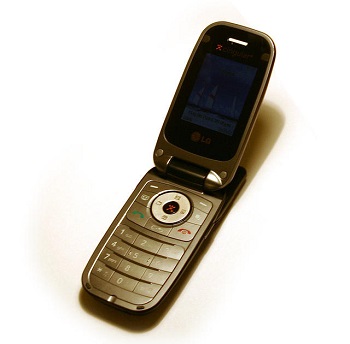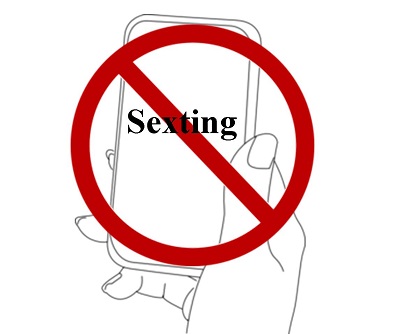In California, if a law should pass, it would mean people would need identification to legally buy a prepaid cellular phone.
A new bill has been put forward by House Representative Jackie Speier (D-San Francisco/San Mateo), that will require that proper identification be presented to retailers before they will be able to legally sell a burner phone – also known as a prepaid cell phone – to a consumer.
The bill has been named the “Closing the Pre-Paid Mobile Device Security Gap Act of 2016”.
The purpose of this burner phone bill is to “close one of the most significant gaps in our ability to track and prevent acts of terror, drug trafficking, and modern-day slavery,” said Speier. These prepaid devices are used by many different people throughout the country without any problem or ill intentions. However, they have also become a central method of communication among those who would do a great deal of harm such as in the case of terrorism, and drug and human trafficking.
If the regulation should become a law, identification would need to be presented when buying a burner phone.
 Retailers selling these prepaid mobile devices or SIM cards would be required to ask a consumer to present the following before a sale can be made:
Retailers selling these prepaid mobile devices or SIM cards would be required to ask a consumer to present the following before a sale can be made:
• The purchaser’s full name
• The full home address of the consumer
• The buyer’s date of birth
The bill also specifies the types of identification that would be considered acceptable for purchasing these mobile devices and SIM cards. T hey include a Federal or State identification card, a W–2 Wage and Tax Statement, a Form 1099 from the Social Security Administration or other government agency or any other type of documentation that would be considered appropriate by the Attorney General.
The retailers selling the burner phone and/or SIM card must record the information that has been presented, along with the information specific to that mobile device. The hope is to be able to reduce the chances for anonymously owning a cell phone that can be used for dubious purposes and to make it more possible to track down the owner of a device that was evidence in a criminal case.
The decision is due to the laws in North Carolina with regards to the illegality of sexting between minors.
A North Carolina judge has now ruled that it is a crime for two consenting teens to take part in sexting one another, in a case that resulted in an adolescent’s ban from using mobile phones during a full year of probation.
The individual in question is a 17 year old in high school who plays football and was caught up in a legal disaster.
The North Carolina teen found himself caught up in a legal battle that started with allegations (not against him) of the statutory rape of a local girl who was 14 years old at the time. This accusation brought about a widespread sweep of mobile phones that was conducted by the Sheriff’s department. It was during that sweep that the 17 year old high school student had his smartphone checked by the police.
At that the time when the mobile phones were being checked as a part of the legal sweep, the boy was 16 years old.
 He attended Douglas Byrd High School in the state and at the time, his girlfriend sent him a sexy picture of herself. He replied with his own similarly themed picture, as a common response from a teen boy whose girlfriend was showing sexual interest in him. Neither the boy nor his girlfriend shared any of the sexting photos with any other person – which is rare and was quote a positive element of this otherwise unpleasant case.
He attended Douglas Byrd High School in the state and at the time, his girlfriend sent him a sexy picture of herself. He replied with his own similarly themed picture, as a common response from a teen boy whose girlfriend was showing sexual interest in him. Neither the boy nor his girlfriend shared any of the sexting photos with any other person – which is rare and was quote a positive element of this otherwise unpleasant case.
Unfortunately, when the police checked the boy’s phone as they investigated the separate statutory rape case – in which he was not a suspect and is still not believed to have been involved – they discovered the various sexting photos. This brought about five charges of felony against the boy. Four were for having sexually exploited himself, a minor, and one was for having a picture of his girlfriend, who was also a minor.
Due to a quirky part of North Carolina law, despite the fact that anyone under the age of 18 can be considered a minor when they are a victim of a crime, when they are 16 or 17 they can be charged as an adult when they are the ones committing the crime. Therefore, because the boy was 16 years old, he was actually an adult using mobile phones to commit crimes against himself as a minor. This, despite the fact that the accused and the victim were the same person.
 Retailers selling these prepaid mobile devices or SIM cards would be required to ask a consumer to present the following before a sale can be made:
Retailers selling these prepaid mobile devices or SIM cards would be required to ask a consumer to present the following before a sale can be made:
 He attended Douglas Byrd High School in the state and at the time, his girlfriend sent him a sexy picture of herself. He replied with his own similarly themed picture, as a common response from a teen boy whose girlfriend was showing sexual interest in him. Neither the boy nor his girlfriend shared any of the sexting photos with any other person – which is rare and was quote a positive element of this otherwise unpleasant case.
He attended Douglas Byrd High School in the state and at the time, his girlfriend sent him a sexy picture of herself. He replied with his own similarly themed picture, as a common response from a teen boy whose girlfriend was showing sexual interest in him. Neither the boy nor his girlfriend shared any of the sexting photos with any other person – which is rare and was quote a positive element of this otherwise unpleasant case.